“I don’t understand why she is only coming forward now, some 30 years later,” a woman said in the shop. “I do,” I said in response.
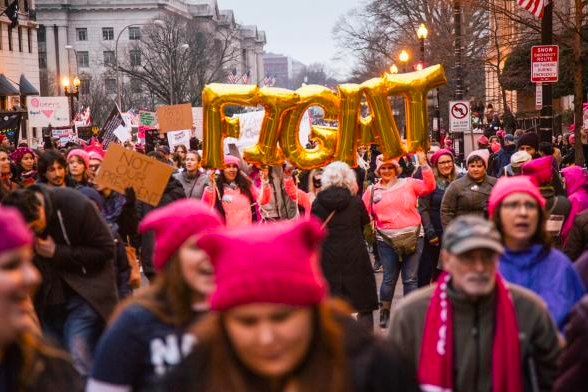
When I heard Christine Blasey Ford giving her testimony, I started crying. I was on the Sausalito ferry heading to work and, like at least half of those aboard, I was listening to her speak. I knew that what she was saying was right and true. I knew it in my bones. I knew it because I have felt that same fear and the shame, the anxiety, the guilt from something that happened to me more than 35 years ago when I was at a friend’s party.
While I was there, one of the men invited me outside and suggested we ‘take a walk’ and then, as we headed away from the house, he pushed me against a tree and started pulling off my clothes while pulling down his pants and pressing his penis into me. His body was heavy, and I was pinned between him and the tree. He smelt of wine and smoke and sweat. What stopped me being raped is two people walking down toward us and so he suddenly pulled up his pants and I pulled my clothes around me. The woman knew me, and the guy she was with knew the man. As they walked up to us, I said to all three of them, “I have to go to the toilet” and then walked up to the house. I went straight up to a friend, told her I wasn’t feeling well and needed to go home right away. We were out the door before the man walked back into the party and my friend took me home. She asked me if I was okay and I said I would be once I got home and got some sleep.
I went home, showered and fell asleep and I never spoke about it again and I never saw the man again. I had all these feelings at the time including ‘I shouldn’t have agreed to go outside, I should have screamed for help, I should have been wearing different clothing, I should have told my friend, I shouldn’t feel so anxious, I should just get on with my life.’
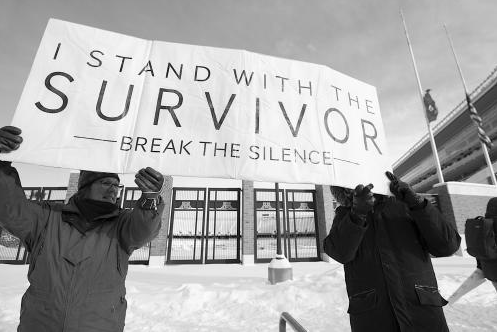
I did get on with my life and yet the memory never left me. Even though I’ve spent more than two decades working for women’s rights and gender equality, including sustained advocacy to end violence against women and gender-based violence, I never spoke about what happened to me.
Together with feelings of fury and outrage, many other women were crying that day, and I would imagine some men too. Three men I know have been violated by other men.
I heard Blasey Ford speaking the truth, her story was real.

I heard her say, “I am terrified” as she came before the committee. I imagined testifying and I imagined feeling terrified.
I imagined her fear as she described having a hand over her mouth, feeling he would accidentally kill her. I could taste that fear. It was visceral.
Her courage gave me hope, as it did so many watching her testify.
“What would happen if one woman told the truth about her life?”, the poet, Muriel Rukeyser asked. “The world would split open.”
In a way, it did that day. The world tilted as one woman stood her ground in front of a room of largely older white male men and told her story.
Blasey Ford told her story in front of one of the biggest audiences imaginable, with so many glued to televisions, computers and cell phones as she spoke. She detailed the violence while maintaining her poise and recalling in vivid language, “Indelible in the hippocampus is the laughter. The uproarious laughter between the two. They’re having fun at my expense.”
Blasey Ford told her story in a way that was reminiscent of the courage that Anita Hill showed when she testified facing an all-white panel of male senators in 1991 during confirmation hearings for Clarence Thomas, then a Supreme Court nominee. One of the profound differences Anita Hill faced was one of race: she had to meet a higher burden of proof due to her black skin.
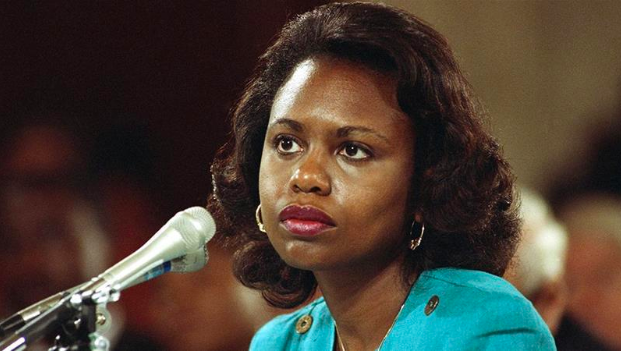
In the Sunday New York Times on September 30th, author Peggy Orenstein refers to a Making Caring Common project survey of more than 3,000 18-25-year olds. More than 60 percent of respondents had never been told about the importance of not pressuring someone to have sex with you. The lead author of the survey, Richard Weissbourd said, “If you ask many parents whether it’s really important that your son has a lot of integrity and is a good person, they would absolutely say yes,” he said. “But if you were to ask, ‘Have you talked to your son in a concrete way about the many ways you can degrade women?’ most parents, I think, would say no.”
Orenstein goes on to say, ‘These days, many parents (myself included) have been vigilant, nearly obsessive, about providing our daughters with positive images of women to counteract the incessant messages telling them their greatest value comes from their body and appearance. We buy them “Nevertheless, she persisted,” T-shirts. We provide books and video featuring estimable female characters. We encourage bravery, intelligence, resilience. We point out the misogyny of the culture and engage them in media critique from the time they can say “Snow White.” …Still, that is only half the equation, and I fear this quest for equality – including a reduction of violence against women – will stall if we don’t start providing more powerful counternarratives about women’s worth, particularly in sexual encounters, to boys.
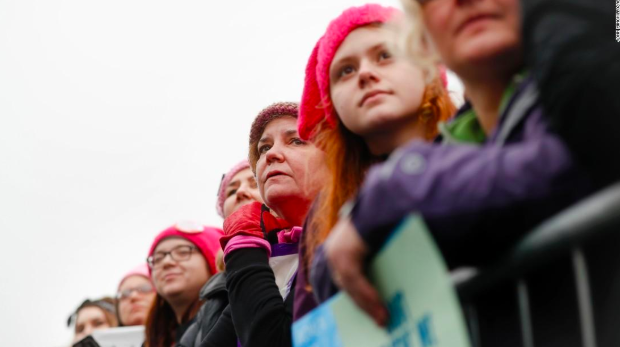
Mara Gay writes in the New York Times Editorial (Sunday, September 30th) about being at a bar and the man who raped her coming up to her decades later to say hello and giving her a kiss on the cheek. She goes on to say, ‘A female friend texted me on Thursday, saying Dr. Blasey’s testimony about that encounter had sent tears streaming down her cheeks. “That feeling, too many of us know it, and the muscle memory of it is so deep that it is something that can never be forgotten,” she wrote. ‘For so many of us, this week has been a collective mourning, a deluge of grief and trauma. We watched Dr. Blasey, and we remembered.’
What to do? What can we do individually, what can we do collectively that will make a difference, aside from ensuring we all join the Women’s March on Washington in January 2019, that will come with a specific set of public policies to advance women’s rights?
The New York Times Letters to the Editor pages are filled with people’s ideas and responses. ‘I am a man, and I can assure you that governments and institutions governed and run by men are not going to significantly change. If women want change, want respect, want personal safety, then vote. Don’t vote for me, Vote for women.’
It’s true that having more women in positions of power, decision-making and influence will help to shift political and economic power and resources and challenge the status quo. We also need more women making movies, choreographing, composing, being recognized by Nobel Prize committees as much as being in Parliaments, board rooms, science labs and as head of Fortune 500 companies if we’re to change attitudes, behavior and systems. There also needs to be a diverse representation of people of all genders, cultures, ages, geographies, races, classes, abilities and identities to increase likelihood of reporting as much as to achieve radical culture change.
Women are more likely to report sexual harassment in the workplace if there are people in leadership and facilitation roles whom they feel comfortable talking to, and whom they feel will understand their situation and circumstances because they are similar in some way rather than vastly different in every way.
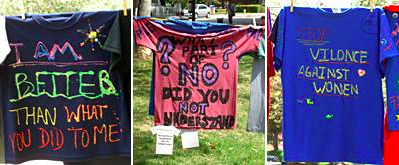
While it’s critical that we reach gender parity in both economic and political spheres, change is not going to happen just by women assuming more positions of power. Men must change too. And it shouldn’t be women changing because men can’t, as is suggested in this Letter to the Editor in the New York Times (September 30th): ‘Why aren’t women told that getting inebriated at a party is never a good idea? Why aren’t they told that they should never get into a car or go into a room with a young man alone if they are unsure of their willingness or their safety? Why aren’t women in the work force advised to take someone with them when they are “Invited” to someone’s house for a meeting? Where are the parents the friends, the siblings who could offer this advice? This advice is not fun or sexy, but must be given, and especially to young teenage girls.’
Following this train of thought results in women being required to be accompanied or protected by men and being held to account for what they wear, eat, drink, and say, where they go and when they travel. This not only disempowers women, and denies them their rights, it results in men feeling judged and second-guessed every time they seek to meet or spend time with a woman and it implies they can’t be trusted or change their propensity for violence. It’s a spiral downwards and it’s a lose-lose situation.
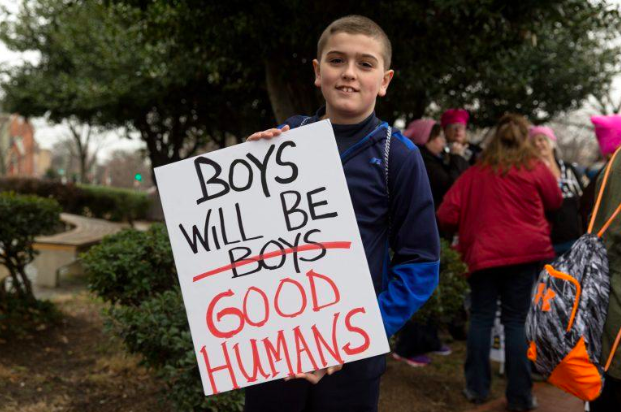
There’s got to be a shift in attitudes, behavior and mindsets at schools, colleges, workplaces and communities to ensure we are building cultures of respect, for ourselves and each other. Gina Bellafonte, in her NYT Big City column (September 30th) quotes Anthony Charuvastra, a child and adolescent psychiatrist in Manhattan, who says, “Gender roles are much slower to change. In my entire history of clinical practice, I have never had an experience with an adolescent boy who has come to me and said, ‘How do I make sure, that I don’t go over the line?’ That’s my small sample size, obviously, but young women are constantly walking this razor’s edge, trying to seem desirable and maintain their safety – either their reputational safety or their physical safety. They are less likely to blame themselves now, when something goes wrong, but they bump into this power asymmetry around sexual expectations and drinking and they are really confused.”
This work of building cultures of respect needs to start with children and young people learning about respectful masculinities. This includes being in touch with their emotions, recognizing that gentleness and vulnerability are also strengths, that balancing work life with time with family, friends and self is important: that expressing feelings is essential to diffusing potential for violence.
When I was a boy I used to think that being strong meant having big muscles, great physical power; but the longer I live, the more I realize real strength has much more to do with what is not seen. Real strength has to do with helping others.
Fred Rogers
It’s why the work in India that my organization is supporting, Gender Labs for Boys, is valuable in helping boys think about their own power and propensity for violence and how to can change this. These labs are introduced to schools to encourage boys to think about what being male means, and to discuss their attitudes to power and violence. They do this so they can recognize that violence harms them as much as others and that rigid forms of masculinity limit their potential and their ability to fully express and know their creativity and humanity. Now we’re supporting an extension of this work to connect boys with their fathers and other male figures and to male leaders in the community, so they can have these conversations.
We’re doing this while supporting women to build strong grassroots movements, working to get more women into political office, supporting women entrepreneurs to access economic opportunities, working with companies to design for diversity and to address sexual harassment, working with governments to create gender-responsive judicial systems and workplaces free of violence, and supporting girl’s education, access to scholarship and mentoring. It requires action on many fronts to see sustained social change in support of women’s rights and gender equality, including freedom from violence.
What to do? Fund organizations that are doing this kind of work. Build your own portfolio of influence through what you choose to fund and resource. Join the Women’s Funding Network. Attend your local Indivisible group. Volunteer for causes and attend forums that build networks and communities in support of change. Nominate women for leadership roles. Advocate for diversity in representation and participation. Be a mentor. Talk to your children about issues of power, boundaries, behavior and identities. Live your values.
Here on my boat, I listen to tinkling bells near the boat ramp, and I watch a man rowing his boat to shore in the inky black water, with his dog for company. There are few stars tonight, and the big buttery harvest moon has been replaced by a lemony wisp of moon. Yet there’s no place I’d rather be, except Piccadilly in the Adelaide Hills, or the sweet sea of home.
Now, even the bells have stopped, and the silence is velvety. If I’m lucky, tomorrow I’ll awake like today, to a peach-crimson sky and a whiskery sea lion popping up from the water, following the wake of a boat as it heads into the bay. I can see that man getting out of his row boat and climbing onto the wharf. His dog jumps out, tail wagging and the man bends down to pat him.
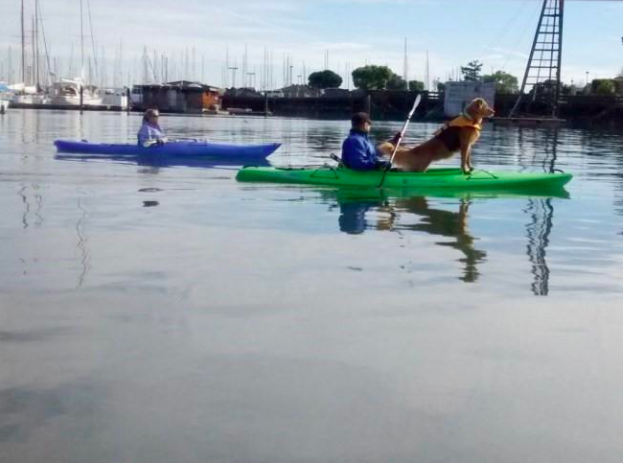
I firmly believe today that the only way to stop violence against women is to speak out and refuse to be silenced.
Zainab Salbi
4 Responses
My favourite letter so far – thanks Jane.
I speak out too & ask that more should.
Go well, Kaye
Thank you Jane for this incredible blog post! I just read it again after a few days, and as is so often the case in your writing, as with most great writing, music and painting, the incredible depth, beauty and structure really rewards repeated moments of attention. We are so fortunate to have your voice in the world.
Thank you Jane for this incredible blog post! I just read it again after a few days, and as is so often the case in your writing, as with most great writing, music and painting, the incredible depth, beauty and structure really rewards repeated moments of attention. We are so fortunate to have your voice in the world.
Agree with Kaye, fabulous post Jane 😊